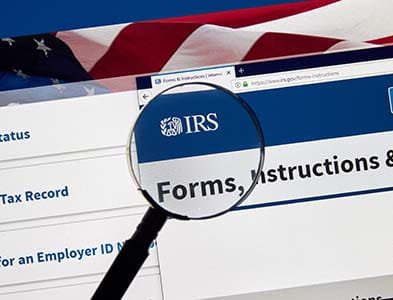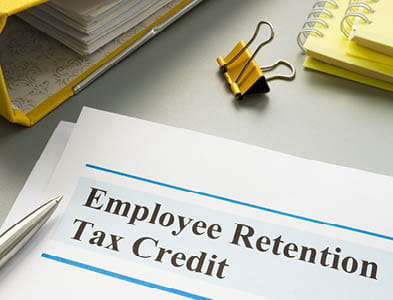How Could the IRS Moratorium Affect Your ERC Claims?
How Could the IRS Moratorium Affect Your ERC Claims?
On September 14, 2023, the Internal Revenue Service (IRS) announced an Employee Retention Credit (ERC) moratorium due to concerns surrounding fraudulent submissions.
Why Is There a Moratorium, and How Long Will It Last?
Enacted as a part of the CARES Act in early 2020, the ERC has had a volume of claims significantly above the forecasted amounts. This is allegedly due to third-party promoters entering the marketplace, many of which are suspected of filing dubious ERC claims. The IRS has previously issued multiple warnings to inform taxpayers of the perceived misguided activities occurring in the market and added ERC to its annual Dirty Dozen list.
The IRS has now invoked the moratorium as its most drastic measure to date to mitigate concerns of fraud and abuse.
The IRS stated that it will not process any new ERC claims until 2024 due to “growing concerns inside the tax agency, from tax professionals as well as media reports that a substantial share of new claims from the aging program are ineligible and increasingly putting businesses at financial risk by being pressured and scammed by aggressive promoters and marketing.”
The suspected fraud is significant — as of July 31, 2023, the IRS Criminal Investigation had initiated 252 investigations that involve over $2.8 billion in potentially fraudulent ERC claims.
What About Claims in Process?
The IRS will continue processing claims filed prior to September 14, albeit at a slower pace because of the need for detailed compliance reviews. The standard processing goal has grown from 90 days to 180 days, and that timeline could extend further if the claim faces additional review or audit.
The IRS provided guidance for taxpayers based on where they are in the claim lifecycle. The press release covers the topic comprehensively, but in sum:
- For those currently awaiting an ERC claim: The claim will still be processed but at a reduced speed. This could take 180 days, or longer if additional compliance scrutiny is needed.
- For those who haven’t filed a claim yet: Review guidelines and consider waiting to file. The IRS emphasized the need for businesses to talk to a credible tax professional.
- For those with a pending claim: Review the program guidelines with a credible tax professional and withdraw any existing claims that have been submitted improperly (even if the claim is already under audit or awaiting an audit).
- For those who have received an ERC that they believe was given in error: Await additional details from the IRS on the settlement program that allows businesses to repay ERC claims without penalties or future compliance action.
How Stout Can Help
At Stout, we have deep expertise in ERC, and we have developed the necessary tools, process, and a government orders database to support you in navigating the ERC. We will evaluate your existing documentation, perform an independent analysis of your eligibility position, and provide the supporting documentation required by the IRS so you can make informed decisions pertaining to your ERC claim.






